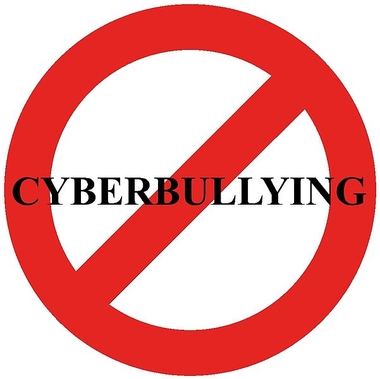The ongoing challenge of combatting bullying and suicides of children

The Buffalo News
A child's suicide over bullying hits hard in Western New York. When people here read that a 12-year-old girl in Florida was so overwhelmed by bullying that she hurled herself from a tower at an abandoned concrete plant, it was hard not to think of Jamey Rodemeyer.
Jamey was 14 when he hanged himself in his back yard two years ago Wednesday. Jamey was gay and he endured relentless bullying about it, until he could endure it no longer.
Bullying has always been a problem. It is, in some ways, simply a fact of growing up. It's a matter of immaturity, a condition that is part of the job description for children, but to which some adults are also prone. Some percentage of people gain perverse satisfaction from the physical or emotional torture they can inflict on others, often as a pack. It has always been that way and, undoubtedly, always will.
But bullying has taken on a more ominous nature in the Internet age. Where bullying once took place in classrooms and cafeterias, it has now infiltrated cyberspace. One hurtful taunt can be seen and amplified by dozens or even hundreds of others. That would be a burden for a strong child, but for others, less equipped to handle that abuse, it can be crippling.
That's how it was for Rebecca Ann Sedwick. The bullying began last year at Crystal Lake Middle School, east of Tampa, Fla. It started as a boyfriend issue, Sheriff Grady Judd said. As many as 15 other girls ganged up on Rebecca, goading her with online messages such as "You should die" and "Why don't you go kill yourself." At one point, she was suspended for fighting with a girl who was once her friend.
Rebecca had been "absolutely terrorized" by the other girls, Judd said. In her diaries, she wrote of how depressed she was. "Her writings would break your heart," he said.
She began cutting herself over the bullying and was hospitalized for three days last December, Judd said.
In response, Rebecca's mother began home-schooling her, but this fall she started at a new school. She loved it, but cyberbullying requires no proximity. It continued and Rebecca began to spiral downward.
A screensaver showed her with her head on a railroad track. Her Internet searches included subjects such as "what is overweight for a 13-year-old girl," ''how to get blades out of razors" and "how many Advil do you need to take to die." She changed one of her online screen names to "That Dead Girl" and, finally, on Monday of last week, sent a message to a boy in North Carolina: "I'm jumping, I can't take it anymore."
That day, she jumped.
Rebecca's funeral was Monday. A sign at her casket read: "Everyday, more and more kids kill themselves because of bullying. How many lives have to be lost until people realize words do matter?"
In some ways, cyberbullying can be a hidden problem. Kids use their smartphones to post messages on social media sites and, unless parents are monitoring what goes on, adults may be none the wiser.
In other ways, though, it is nearly incomprehensible that no one would discover this kind of abuse, because social media postings can quickly become viral. That is a gap that needs to be filled.
States are moving against this problem. Less than a year after Jamey's death, New York passed a law requiring schools to designate an official responsible for prompt action on reports of cyberbullying, to coordinate with police "when appropriate" and develop a strategy for dealing with cyberbullying. All present and future school officials would be trained to detect and act on instances of cyberbullying.
However, the bill provided for no criminal charges, a necessary deterrent. Assemblywomen Jane Corwin, R-Clarence, and State Sen. Michael Ranzenhofer, R-Amherst, are trying to correct that lapse. Their bill would make bullying through electronic means a misdemeanor punishable by a $1,000 fine or up to a year in jail. That's a minimum that should be done.
Florida's anti-bullying law has allowed authorities to seize the phones and laptops of Rebecca's friends and former friends, but punishments are carried out by schools, not courts.
In Southern California, the Glendale Unified School District is monitoring the public posts students make on social media sites. That has caused debate about privacy rights, though public posts on social media are the opposite of private. District leaders want to curtail online bullying, drug use and other problems after two area teenagers killed themselves last year.
Parents need to play a role in this, too, monitoring usage as best as possible and taking other steps to limit the time their children can post on the Internet without their knowledge. Children, by and large, are not equipped to handle the privacy - call it power - that social media and smartphones give them.
The need for action is desperate and it is ongoing. Governments need to legislate, and parents need to educate themselves and their children - not just on what they should and shouldn't post, but on the need to report bullying. More children are out there, on the precipice, waiting for the adults to do something.
___
September 25, 2013





